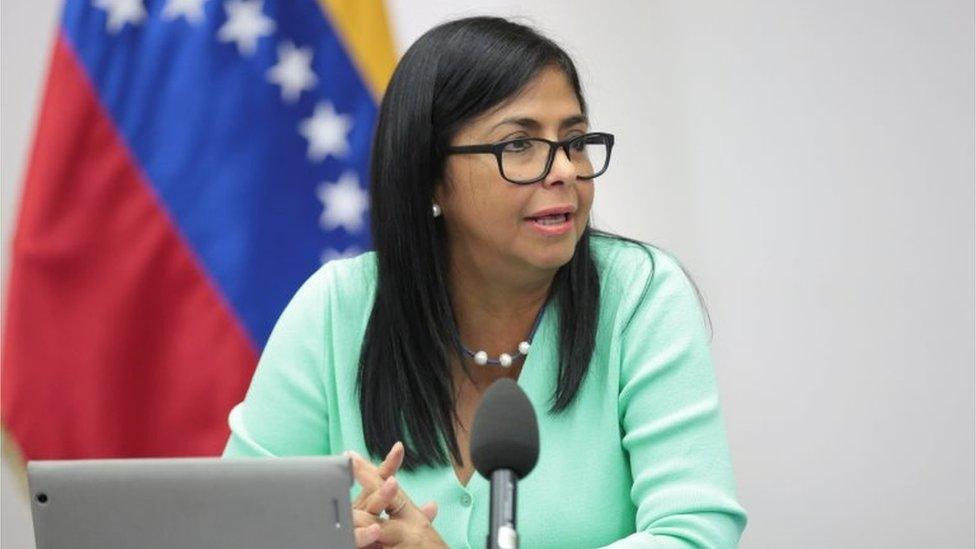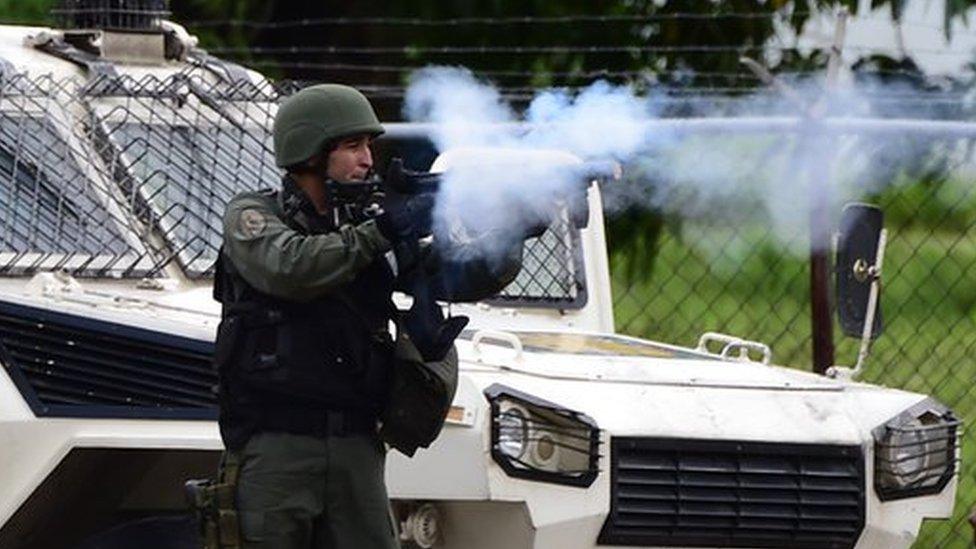Venezuela vice-president Delcy Rodríguez banned from EU
- Published

Delcy Rodriguez was foreign minister and head of the National Constituent Assembly before becoming vice-president
The European Union has imposed sanctions on 11 Venezuelan officials following elections in May which the EU says were "neither free nor fair".
Among those sanctioned is newly nominated Vice-President Delcy Rodríguez and her predecessor, Tarek El Aissami.
They will be banned from travelling to the EU and have their assets frozen.
The polls, which the opposition boycotted, saw Nicolás Maduro elected to a second six-year term in office.
In a statement published on Monday, the EU said that the "outcome lacked any credibility as the electoral process did not ensure the necessary guarantees for them to be inclusive and democratic".
It also said the 11 officials were "responsible for human rights violations and for undermining democracy and the rule of law in Venezuela".
The Venezuelan government condemned "the continued aggression and meddling by the EU" and warned that it would not accept any threats.
The EU had already imposed sanctions on seven Venezuelan officials in January but it had warned that if the elections in Venezuela went ahead it would add more names to the list of those sanctioned.
Before being named vice-president on 14 June, Ms Rodríguez served as head of the National Constituent Assembly, a body entirely made up of government supporters and which critics say was created to bypass the opposition-controlled parliament.
She has also been foreign minister and is, along with her brother Jorge Rodríguez, one of President Maduro's closest allies.
High-ranking Venezuelan officials also been the target of sanctions by the US and Canada, with President Maduro himself having any assets he holds in the US frozen.
The sanctions come just days after the UN High Commissioner for Human Rights, Zeid Ra'ad Al Hussein, said that Venezuelan security forces had carried out hundreds of arbitrary killings under the guise of fighting crime.
- Published22 June 2018
